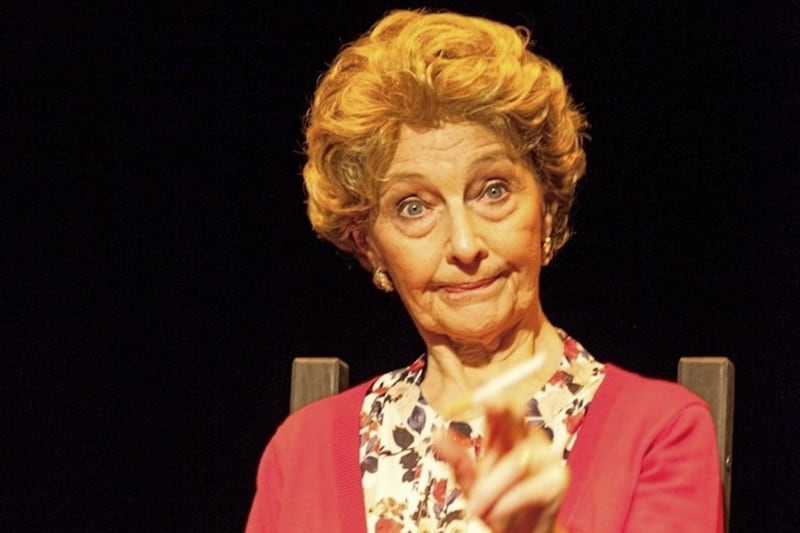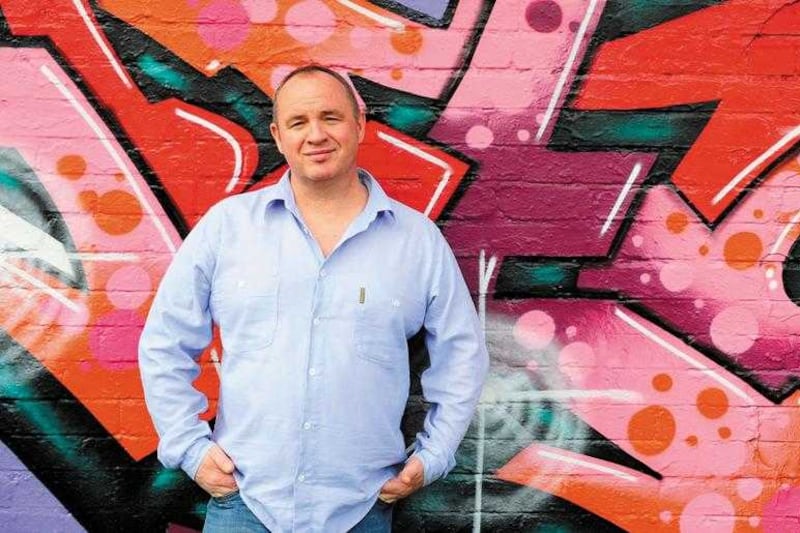THERE is much political debate today about truth and how we as a society deal with the legacy of our recent past, but in his new play west Belfast writer Pearse Elliott highlights that truth is much more than facts: truth is personal.
As the Tide Ebbs is a dark comedy about "truth and buried lives", reflecting upon the impact of our troubled past, in particular upon those aged in their 40s and 50s – or, as Elliott describes them, "of a certain vintage now".
The title is taken from a line in in the play and refers to the debris visible on the shore when the tide goes out.
"It's that metaphor of what is left behind and what is hidden. I remember seeing a dead bird washed up on shore and more poignantly the image of the young Syrian refugee, whose dead body was carried from the sea brought to the fore thoughts of what was being covered up," explains Elliott.
As well as his television screenplays Pulling Moves, Man about Dog and The Mighty Celt, which captured working-class life in republican west Belfast, Elliott is known for his hard-hitting plays Sceptic Tiger and Man in the Moon. The latter explored the rise of suicides in post-ceasefire Northern Ireland; he believes that, in common with that work, his latest play has the potential to provoke an emotional response.
When researching the topics, he was surprised to read statistics that one in three people in Northern Ireland had been through jail or affected by the conflict here.
"There is a huge untapped and very live issue here that a lot of people will have empathy with," he says.
The plot involves three men who share stories of lost loves, regrets and dark deeds in a run-down Belfast council house, which doubles as an after-hours drinking den. Elliott admits that he has been no stranger to such premises. In fact it was during a visit to one that he had his "epiphany" for this play.
"These houses seem to exist in most housing estates in both sides of the communities – people go late at night and have a bit of a drink. And then these stories started to come to the fore.
"It occurred to me about a year and half ago that there is something very rich about this. I've met so many people [in these places] over the last 10 to 15 years who are people I would consider to be subconsciously suffering from post-traumatic stress.
"What is arising now in this post-conflict era is there are young people who have no idea about what went on during the Troubles. This play is not raking over the coals of that, but it's about giving a perspective of what it was really like then and its impact."
Amid the bickering over remote controls and music, there is a real social commentary about lost opportunities and lost love.
"For many, the conflict forbade the opportunity for love and a happy family life. Many who were in jail had long-distance relationships; I recall one man who wrote to an American girl from jail, but when he got out he struggled with the reality of life."
The Rawlife Theatre Company production stars Martin Maguire, Michael Liebmann and Billy Clarke, with Martin McSharry taking the reins as director. Elliott has very much been present at rehearsals and is very impressed by the calibre of acting.
"You always try and leave something in a script for an actor to develop and bring on and I'm delighted by how they've embraced it."
Like in many of Elliott's plays, music is a strong feature: the soundtrack for As the Tide Ebbs is the music from Martin Scorsese's film The Last Waltz.
"One of the houses we used to visit always had The Last Waltz playing, simply because it was the only DVD that worked, and everyone there was pitch perfect in singing all of the music from the film," he laughs.
So what does Elliott think audience will take away from As the Tide Ebbs?
"I'm only the dramatist," he says before pausing. "The main thing for me is to touch people with the work. You can confront very serious issues through drama but I'm always conscious that people want to be entertained. It is very much thought-provoking and humorous but there is a pathos to it that could really affect people."
Elliott is currently working on a "Billy Wilder-type comedy" for the Lyric theatre later this year.
"It's a knockabout comedy about a couple living in a house who are no longer together but can't get out of the house because of the negative equity," he reveals.
His play The Holy Holy Bus, a bitter-sweet tale of love, happiness, disappointment and faith, plays the Grand Opera House in Belfast in the autumn and has attracted interest from American film distributors Fox Searchlight Pictures.
:: As the Tide Ebbs, the Lyric Theatre, Belfast, May 17 to June 5. For tickets see lyrictheatre.co.uk.





